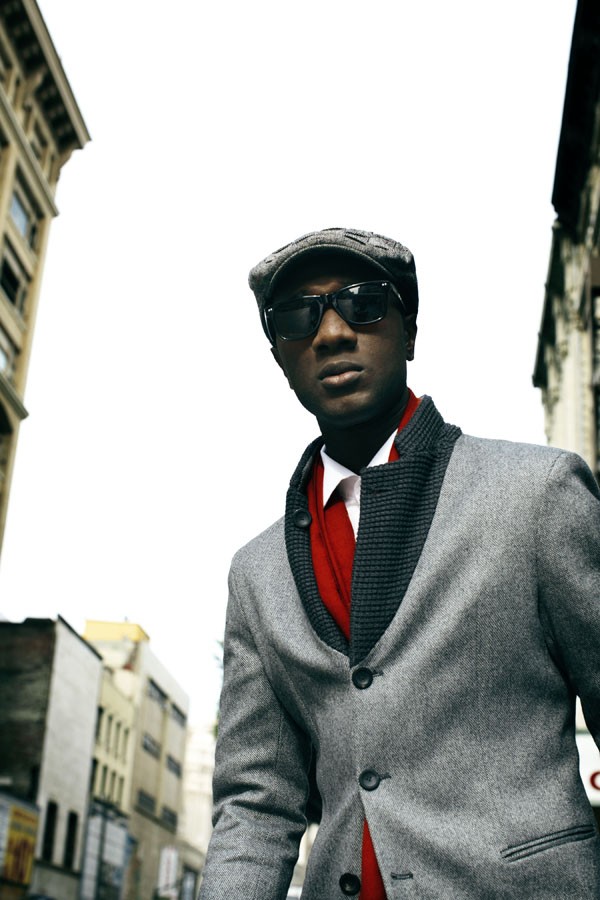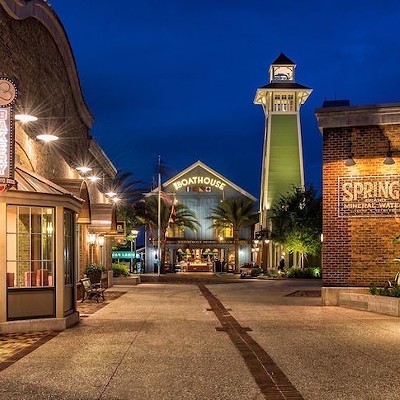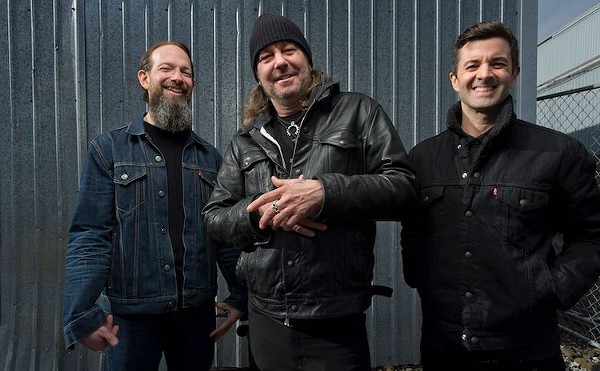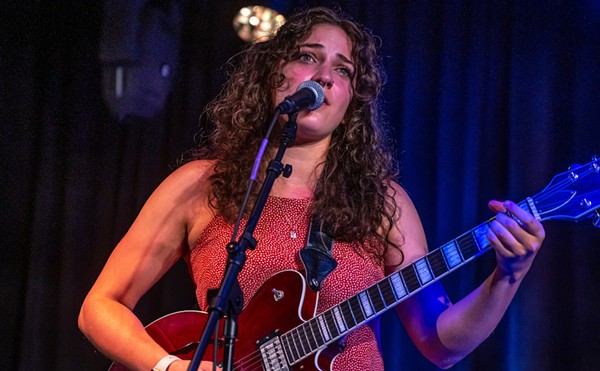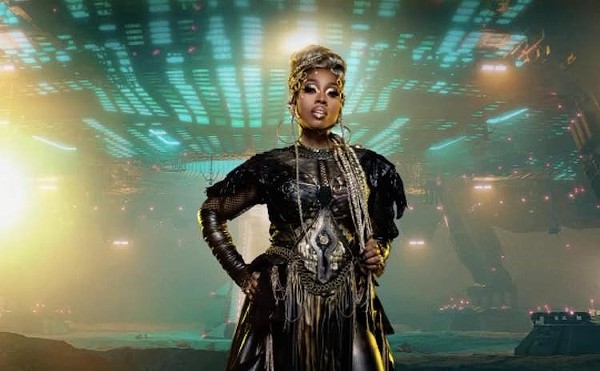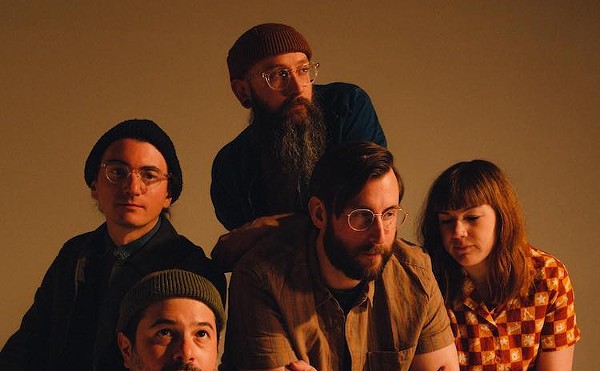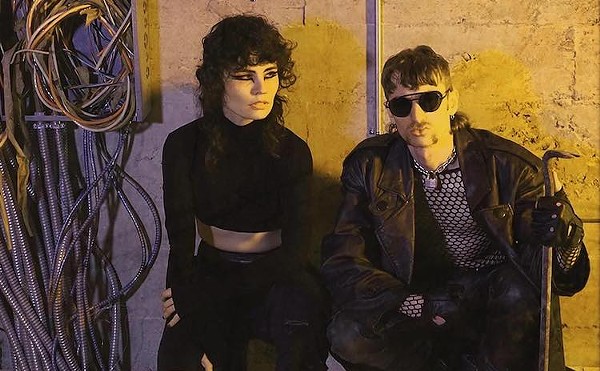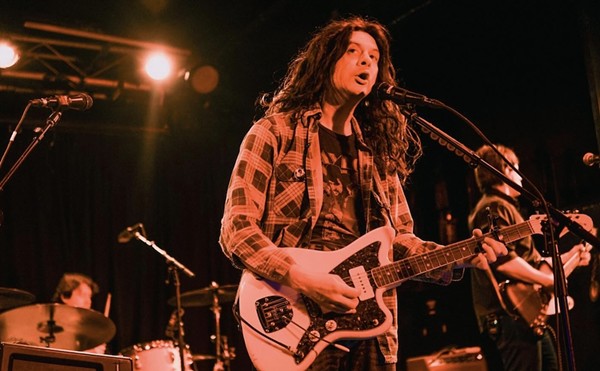Aloe Blacc & the Grand Scheme
with Maya Jupiter, Peter Baldwin8 p.m. Wednesday, Nov. 24
Back Booth, 407-999-2570
www.backbooth.com
$10
When hip-hop artist Aloe Blacc released his debut album, Shine Through, in 2006, he was best known in hip-hop circles as an entertaining indie rapper with a gift for storytelling and self-effacing humor. He made a modest name for himself as one half of L.A. duo Emanon, a partnership with DJ Exile that merited several albums but not much else other than some decent street buzz out West.
Shine Through felt like a juicy secret, a low-key pleasure in which a minor rapper indulged his fleeting muses, from soul to Caribbean swing, with surprisingly adept results. Boasting equally intemperate production from Oxnardian brothers Madlib and Oh No allowed Blacc to lay back on the beat and inject himself only when absolutely necessary, making Shine Through the perfect background music to a dominoes game. Its flashes of eccentricity – “Busking,” was recorded at a bus stop in real time with Blacc simply humming an insidiously catchy tune about, well, waiting for the bus, and Blacc’s reworking of Sam Cooke’s “A Change Is Gonna Come” as a hallucinogenic chillout jam – stand out as warmly embraced afterthoughts.
Four years on and Blacc remained a fond memory from Stones Throw Records’ voluminous archive of just such noodling afterthoughts. Then in late September, he finally unveiled his sophomore effort, Good Things, on the heels of his increasingly popular theme song for a far less popular HBO show called How to Make It in America. That song, titled “I Need a Dollar” expanded on Shine Through’s vague Bill Withers/Sam Cooke lineage and revealed a newly confident Aloe Blacc firmly ensconced in mean-streets Motown soul. One month later, Blacc made his major TV debut on the U.K. show Later … with Jools Holland. The guests that night were Paul McCartney, Elvis Costello, Neil Diamond, the Black Keys and none other than Aloe Blacc. In tight black jeans, a tucked-in button-up shirt, a long tie, a grown-out Afro, and surrounded by musical giants, Blacc could have been mistaken for Curtis Mayfield, rocking the crowd on Soul Train. Blacc went beyond mimicry and into the realm of genuine spiritual channeling. It was induction by association.
“Paul McCartney was dancing to ‘I Need a Dollar,’” says Blacc two weeks later. “It was really cool. [I felt] validated. As an artist, what I’m looking for is acceptance from my peers and admiration from my fans. When captains of industry – my teachers – approve, it makes me feel like I’ve really accomplished something. My dad said I needed to be more suave, more smooth. He’s a tough critic.”
At 31, Blacc is the same age as What’s Going On-era Marvin Gaye, and with a velvety voice, the look of a relic and songs that graze social issues ever-so-slightly, Blacc could be facing some mighty expectations as a voice of the downtrodden in America. That, in and of itself, raises tough questions about not only Blacc’s socio-political musical goals, but also his background. By all accounts, Blacc’s upbringing (his real name is Egbert Nathaniel Dawkins III), if not exactly privileged, was one of comfort and support. A military brat, he speaks highly of his Panamanian parents – he’s a first-generation American – and their encouragement of his musical leanings. He was taught the trombone and his father brought home records, from LL Cool J to Michael Jackson, for him to learn from. Blacc graduated a Renaissance Scholar from the University of Southern California in 2001 and immediately found himself touring Europe alongside Stones Throw hip-hop act Lootpack.
Part of Shine Through’s charm was its implicit dilettantism, a West Coast academic’s casual exploration of his parents’ roots and his newfound interests. Now, Aloe Blacc, decked out in an all-white suit and red bowtie on the cover of Good Things and wah-wah’ing his way through songs like “Hey Brother,” is meant to be a bona fide soul searcher, a working-class hero of funk and positivity. Good Things, then, is either a brilliant reinvention or shallow cooptation. As Blacc sees it, the answer is both, and neither are bad things.
“Oh, no, no. I don’t have any issues with credibility,” says Blacc. “Especially when I’m getting phone calls from [Ocala, Fla.-based legendary engineer] Bruce Swedien – he’s near Orlando. He recorded all of Michael Jackson’s hits from ’78 to 2001. He called to tell me my version of ‘Billie Jean’ is beautiful and if Michael was alive he would’ve loved it. I got an e-mail about [“I Need a Dollar”] from one of the Ohio Players, you know what I’m saying? If they liked it, then I’m doing something right. Are people going to expect a What’s Going On? Possibly. I think I’m capable of it. I don’t think I would do a whole album like that, but I do want to comment on political or social issues, sure.”
The key to placing Blacc’s musical intentions, if it must be done, lies in his biggest obsession; it’s not Marvin Gaye or Sam Cooke or Bill Withers or any of the socially outspoken soul singers of turbulent times, though they rank highly. Instead, Blacc’s main man is Nat King Cole, a classically trained West Coast pop interpreter. Blacc speaks with great admiration of Cole’s ability to make a standard his own, to transform chart-toppers into deeply felt meditations without compromising their universality. He romanticizes a time when record labels’ songwriters would churn out pop hits and a variety of performers, from Cole to Pat Boone to Ricky Nelson, would all do their own versions and let the public suss it out. It wasn’t the song that was necessarily personal; it was the rendition.
“Because I’m good at telling stories, I can embody the kind of tortured soul that every artist thinks they need to be,” says Blacc. “Quincy Jones gave a talk recently and one of the people in the audience asked him, ‘What do you suggest for upcoming artists?’ He said, ‘Find 10 artists that are your favorite. Study everything they did, and then you can create your own [style] out of that.’ I intend to evolve so I can develop a character that’s distinct and distinctly my own.”
That character development – an interesting choice of words considering Blacc says he wants to write and star in a Nat King Cole biopic – depends on having the time to evolve, something Blacc believes does not exist in today’s “now” culture.
“An individual cannot have learned from anywhere. They’re supposed to be some phoenix that came out of nowhere with a completely unique and brand-new style. I’m nothing more than a sponge – you’ve got to learn from somewhere. I wouldn’t be rapping if there was no LL Cool J. I wouldn’t be singing if there was no Cat Stevens.
“It took them 10 years to figure out who they are,” says Blacc. “Some people don’t look at me as the guy who is all of these different elements. That’s fine. I’m sure I’ll be around in 10 years and everyone will have to change their tune accordingly.”

